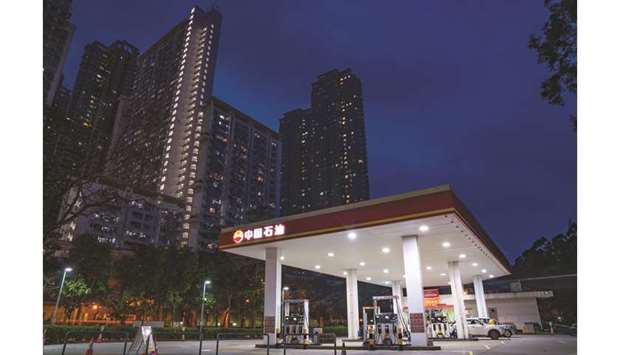PetroChina is bucking normal practice and raising its wholesale natural gas prices during the weak-demand spring season, several sources said, preparing for the coming consolidation of China’s pipeline assets and trying to recoup huge fuel import losses.
The increases from PetroChina – which supplies more than 70% of China’s gas – come as spring brings warmer temperatures, when demand and prices typically fall.
PetroChina is also under pressure to recoup continuing losses from its gas import business due to high input costs versus government-capped domestic prices, sources with knowledge of the matter said.
PetroChina lost 3.3bn yuan ($480mn) on its gas imports in the first quarter of this year due to high fuel costs.
Over 2018, the Chinese major incurred a net loss on its gas imports of nearly 25bn yuan.
“Anticipating the launch of the national pipeline group in the third quarter that will take away a business with massive guaranteed revenues, the company wants to bide the time paring losses in the gas import business,” said a gas official with a state oil giant.
PetroChina’s gas import business has suffered losses for years because its import costs – especially supplies of liquefied natural gas (LNG) under long-term contracts – often exceed government-capped domestic prices, according to PetroChina sources and analysts.
PetroChina also wants to compensate for expected revenue erosion from a spin-off of some of its assets once a national pipeline group is formed as part of a reform of the oil and gas sector, three company sources and two analysts said.
PetroChina needs the extra income to make “investments in the downstream gas distribution sector as it prepares to spin off pipeline assets,” said Wang Haohao, gas analyst with consultancy Zibo Longzhong.
Beijing plans to launch this year a national oil and gas pipeline company that will combine assets from PetroChina, China National Offshore Oil Corp (CNOOC) and Sinopec, a move aimed at spurring private and foreign exploration investment.
The price increases sought would apply to wholesale rates that PetroChina charges provincial piped-gas distributors, power plants and big industrial users such as fertilizer producers.
PetroChina expects to agree with buyers to prices about 6.4% above government-set city-gate prices for gas from conventional domestic fields and imports by pipeline from Central Asia, which together make up more than 60% of PetroChina’s total gas supplies, said three of the sources.
The proposed increase – compared with a 20% rise PetroChina was asking for – comes out of negotiations between PetroChina and buyers, with mediation by state planner the National Development & Reform Commission (NDRC), said one of the sources.
All the sources spoke on condition of anonymity because they are not authorised to speak to the media.
PetroChina normally prices gas at a discount or flat to city-gate levels in the spring as demand ebbs in warmer weather.
For supplies of higher-cost LNG imports and domestic shale gas output, PetroChina still aims to raise prices by up to 30% above city-gate levels, said the three sources.
NDRC did not respond to a faxed request for comment.
PetroChina did not respond to emails.
With a goal to sign up annual supply deals with buyers by end of June, PetroChina, the listed arm of state-owned China National Petroleum Corp (CNPC), started raising prices with some customers of LNG or shale gas in April.
A listed fertilizer producer in Sichuan province received a 10% price rise for its baseload supply contract to 1.6 yuan per cubic meters, said a plant manager with the company, declining to be named as he is not authorized to talk to media.
Additional supplies on a spot basis rose by more than 20% from April to around 1.8 yuan a cubic meters, the manager said.

A PetroChina gas station stands at night in Hong Kong. The company is bucking normal practice and raising its wholesale natural gas prices during the weak-demand spring season, several sources said, preparing for the coming consolidation of China’s pipeline assets and trying to recoup huge fuel import losses.
